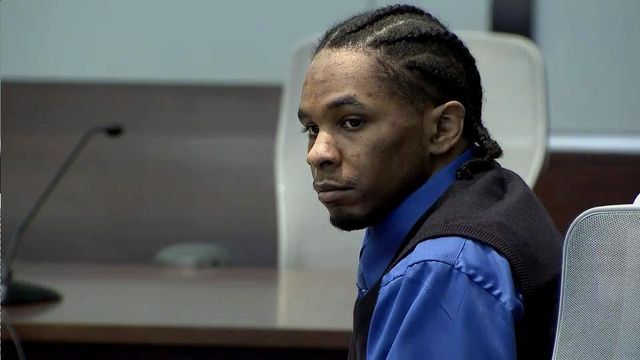Durham police reviewing investigation into Duke student's murder
Durham Police Chief Jose Lopez says he is reviewing the investigation into the 2008 shooting death of Duke University graduate student Abhijit Mahato after Mahato's suspected killer was acquitted Wednesday on all charges in the case.
Posted — Updated"We are going back six years to look at what occurred and make sure whatever shortcomings that haven't been addressed will be addressed," Chief Jose Lopez said.
Lopez's statement comes following a comment Wednesday from Assistant District Attorney Jim Dornfried who acknowledged that the state's case against Laurence Lovette for the Jan. 18, 2008, murder of Abhijit Mahato had holes in it.
"We worked with what we were given," Dornfried told reporters after a jury found Lovette not guilty of the crime. "Obviously, the defense pointed out certain deficiencies. I would leave that to the police department to explain why those deficiencies existed."
Lopez said the police department has already made changes over the years in how it investigates cases, such as how police take notes and make identifications.
"We are addressing it six years later, and I’m hopeful the issues we see are things we've already seen in the changes that I've made," he said. "A lot of that stuff has changed."
Friends found Mahato, 29, dead in his apartment near Duke's campus approximately 21 hours after, investigators said, someone withdrew from an ATM more than $500 from his savings account.
Durham police charged Lovette on March 13, 2008, after he was arrested for the similar robbery and killing of Eve Carson, a University of North Carolina at Chapel Hill senior – a crime for which he was convicted in 2011 and is serving life in prison without the possibility of parole.
Earlier this year, Lovette rejected to a plea deal in Mahato's case, causing prosecutors to take to trial what North Carolina Central University law professor Irving Joyner says was a weak case.
"(Prosecutors do not) conduct a private investigation. They rely on the police department to bring them the evidence and then use that evidence to put together the best case that they can present," Joyner said.
The state called more than two dozen witnesses at trial, but they had no physical evidence and no eyewitnesses linking Lovette to the crime.
Their key witness – a woman who told police that she heard Lovette admitting to the killing – had her credibility attacked by defense attorneys who also raised other questions for jurors to consider, including why the state opted to call the lead investigator in the UNC murder case rather than the lead homicide detective in Mahato's.
"In this case, the defense attorney really exploited the discrepancies and the weaknesses and pointed those discrepancies out to the jury," Joyner said. "Those jurors understood what those discrepancies were."
Ultimately, the jury of 10 women and two men deliberated for eight hours before acquitting Lovette Wednesday morning.
"We went over every detail. There just was not enough evidence," the woman who served as Juror No. 1 said Thursday. "(The verdict) was one of the most difficult things we had to do."
• Credits
Copyright 2024 by Capitol Broadcasting Company. All rights reserved. This material may not be published, broadcast, rewritten or redistributed.






